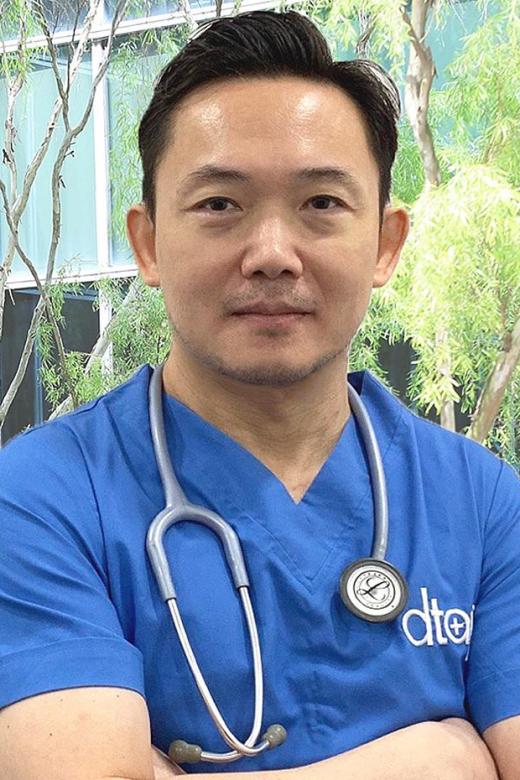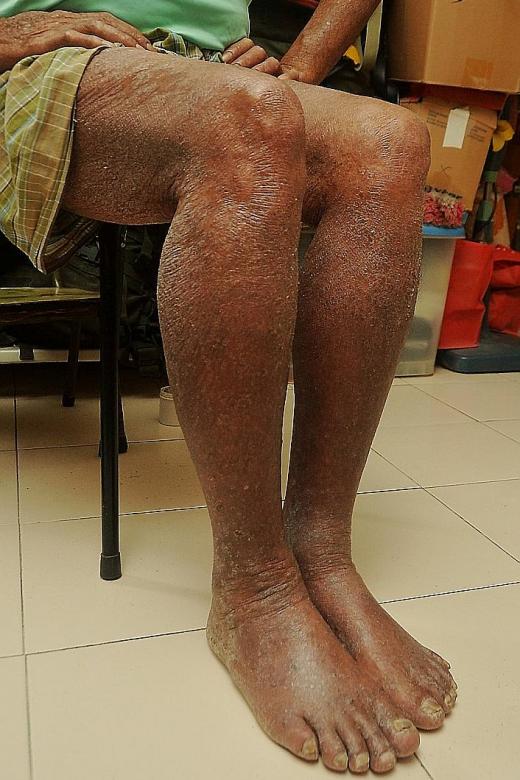Debunking common myths about psoriasis, a skin disease
The skin disease afflicts 1 to 2 per cent of Singaporeans, and affects the skin, scalp, nails and joints
If you notice flaky and thick patches on your skin that itch, or an itching scalp and hair loss, you may be suffering from psoriasis - a chronic inflammatory disease that affects the skin, scalp, nails and joints.
This skin disease is estimated to affect 1 to 2 per cent of Singaporeans.
In view of World Psoriasis Day this Thursday, Dr Lim Chun Siong, a resident doctor at DTAP Clinic, gives a better understanding of the condition that afflicts many globally.
SYMPTOMS AND COMPLICATIONS
Psoriasis on the skin appears as flaky and thick patches that may itch or become sore.
These rashes can be disfiguring and embarrassing for sufferers if they appear on exposed parts of the body such as the face, neck, arms or legs.
Psoriasis on the scalp may itch, give rise to flaky dandruff and result in thinning hair.
Psoriasis on the nails can range from the appearance of small pits, discoloration or abnormal growth of the nails, separation of the nails from their beds, and even crumbling of the nails in severe cases.
Psoriasis can cause joint pain, swelling, stiffness or even joint deformity if not treated early.
This happens in up to a third of patients.
They also have a higher chance of developing obesity, high blood pressure, high cholesterol, diabetes, heart disease, stroke and fatty liver.
Rare complications can sometimes occur where psoriasis affects so much skin that the whole body turns red, a condition known as erythroderma.
Urgent care is necessary to treat this problem.
Soothe your skin with premium skincare products and more while saving with an iHerb Promo Code.
7 COMMON MYTHS
It is merely a rash
This is not true. Psoriasis can affect other organs such as the joints and tendons, and it is known to increase the risk of diabetes and heart disease.
It is contagious
This is not true. It is an inflammatory disorder and is not caused by an infectious agent.
It affects adults only
Psoriasis can begin at any age.
It is caused by poor hygiene
This is not true. Poor hygiene is not known to cause or trigger psoriasis.
If you have psoriasis, so will your child
Although psoriasis is an inheritable condition, not everyone who has a family member with the disease will develop it.
Exposure to risk factors- smoking, obesity, alcohol, certain medications, bacterial or viral infection - contributes to the development of psoriasis in people who already have the genetic inheritance.
It is curable
Psoriasis cannot be cured, but its symptoms can be managed and controlled with medications and/or phototherapy. It can come in varying severity, can subside and relapse.
Topical creams are the only treatment
This is not true. Topical anti-inflammatory creams containing coal tar, vitamin D or corticosteroids alone may be adequate to treat mild cases.
More extensive or severe symptoms often require other treatments, such as ultraviolet light therapy, oral immunosuppressive medications, or injection of biologics for better control of the disease.
HOW TO IMPROVE QUALITY OF LIFE
- Learn how to control your symptoms well by treating flare-ups early with medications, avoiding triggers, practising good skincare and adopting a healthy lifestyle.
Infection, skin injury, weather, emotional stress, smoking, alcohol and certain medicines can trigger the condition. Regular use of moisturisers helps to reduce itch and irritation and soften the plaques. Also, daily baths can help remove scales.
- Learn how to manage stress (which can trigger psoriasis) through relaxation techniques, meditation, exercise, and attending stress management programmes. Talk to your doctor if you suspect you have succumbed to depression. Some of the symptoms are a lack of interest in things you used to enjoy, inability to focus, loss of energy and inability to sleep.
- Join support groups such as the Psoriasis Association of Singapore (www.psoriasis.org.sg) to learn more about the disease, connect with others in similar situations and share experiences on how to cope.
Get The New Paper on your phone with the free TNP app. Download from the Apple App Store or Google Play Store now




